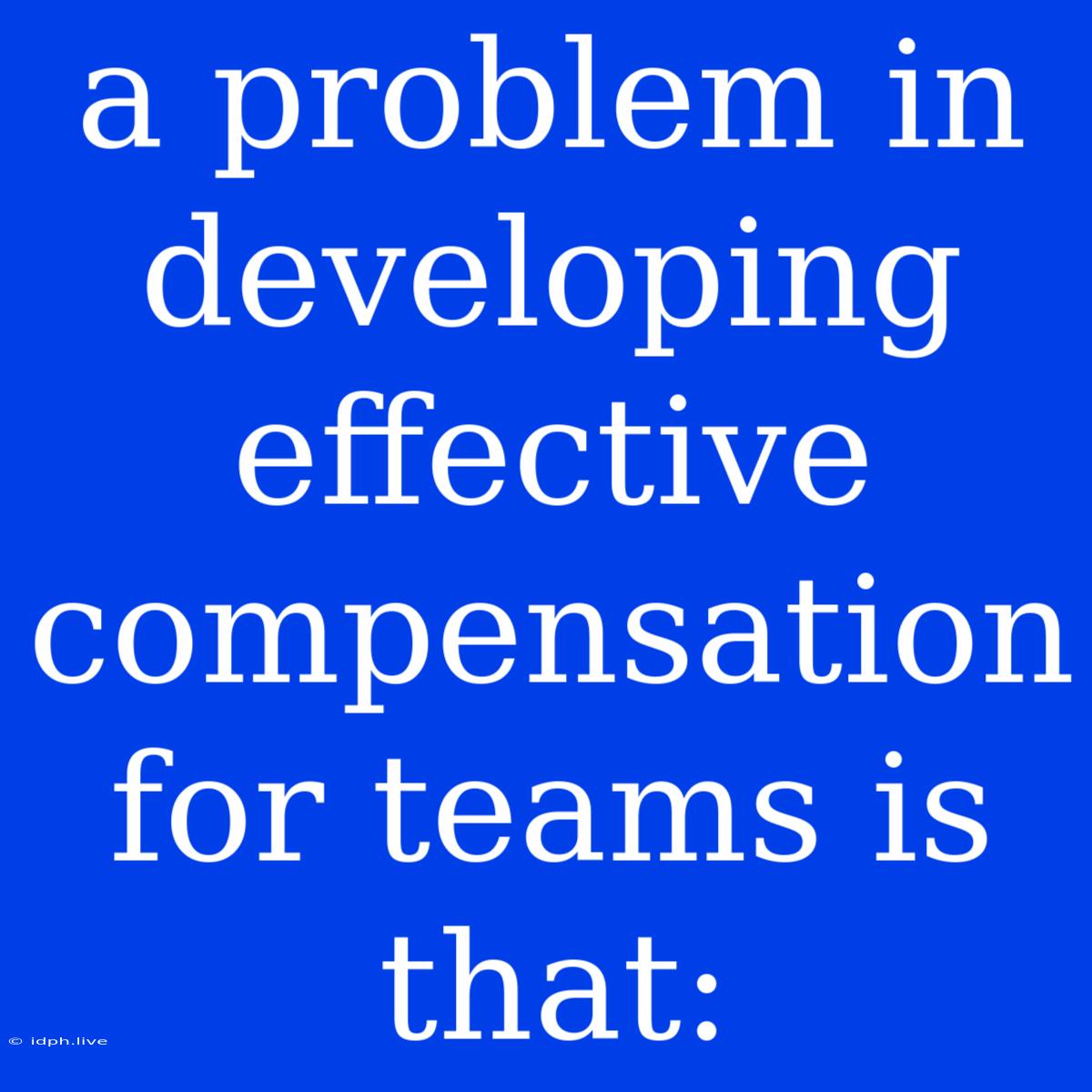The Challenge of Effective Compensation for Teams: Why It's More Than Just Individual Paychecks
Developing an effective compensation system for teams is a complex challenge that goes beyond simply handing out paychecks. While individual performance and contributions are important, the success of any team relies on collaboration, shared goals, and a sense of collective achievement.
Here's why designing team-based compensation is tricky:
1. Measuring Team Performance: A Moving Target
How do you quantify the collective efforts of a team? Unlike individual contributions, which can often be measured through KPIs or specific deliverables, team performance is often intertwined and difficult to isolate. This makes it challenging to fairly distribute rewards based on team success.
- Example: A sales team might hit their target, but was it due to a superstar salesperson, or effective collaboration and support across the team?
2. The Free Rider Effect: Motivation and Fairness
How do you ensure everyone contributes and benefits equally? When team-based compensation is implemented, there's always a risk of "free riders" - individuals who benefit from the team's success without contributing their fair share. This can lead to resentment and demotivation among those who are pulling their weight.
- Example: A team project where one member takes on the majority of the workload while others coast along, ultimately receiving the same reward.
3. Aligning Individual Goals with Team Objectives: A Balancing Act
How do you ensure individual aspirations are aligned with the team's overall goals? Effective compensation systems need to recognize and reward both individual contributions and team success. This requires finding a delicate balance that incentivizes both individual effort and collaborative behavior.
- Example: A marketing team where individual members are rewarded for generating leads, but the team itself is also rewarded for achieving higher conversion rates.
4. The Role of Culture: More Than Just Dollars and Cents
How do you create a culture of shared responsibility and collective success? Compensation alone can't build a high-performing team. A strong company culture that fosters collaboration, trust, and open communication is essential to creating a supportive and motivating work environment.
- Example: A team that values collaboration and recognizes individual efforts through non-financial rewards like public acknowledgement or development opportunities.
Addressing These Challenges:
- Clearly Defined Team Goals: Ensure team goals are measurable, specific, and understood by all members.
- Transparent Performance Measurement: Establish clear metrics for evaluating team performance and ensure everyone understands how their contributions are being assessed.
- Team-Based Incentive Programs: Consider implementing team bonuses or rewards tied to achieving specific goals.
- Individual Recognition and Development: Acknowledge and reward individual contributions, while also providing opportunities for personal growth and development.
- Culture of Collaboration and Trust: Build a strong company culture that values collaboration, open communication, and mutual respect.
By addressing these challenges and developing a comprehensive, transparent compensation system, organizations can create a more collaborative and productive work environment that fosters team success.

